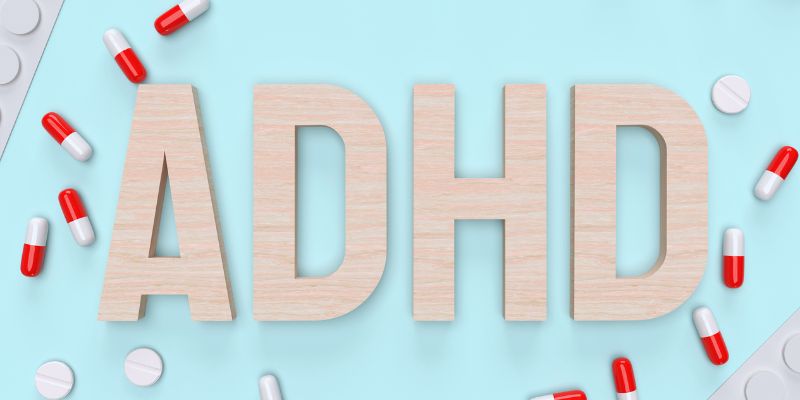Is Wellbutrin Effective for Treating ADHD: Everything You Need To Know
Advertisement
One often recommended prescription is Wellbutrin or bupropion. One uses it mostly for smoking cessation and sadness. Still, some doctors also write it for attention deficit hyperactivity disorder (ADHD). Its unusual mode of action has attracted interest in off-label use for ADHD. Wellbutrin is not a stimulant, unlike most conventional ADHD medicines.
For those who might not be able to tolerate stimulants well, this makes it an attractive choice. How well, though, can Wellbutrin control ADHD symptoms? The usage, safety, and efficacy of Wellbutrin in treating ADHD are discussed in this article. You will learn about its possible advantages, ways of operation, and hazards. You will be quite clear at the end about whether Wellbutrin is appropriate for you.

How Does Wellbutrin Work for ADHD?
Wellbutrin acts differently than most ADHD medicines. It influences the brain's norepinephrine, dopamine, and adrenaline levels. Focus, concentration, and impulse control greatly depend on these neurotransmitters. Stimulants such as Adderall and Ritalin Wellbutrin, on the other hand, target dopamine directly. Wellbutrin, on the other hand, somewhat increases norepinephrine activity and dopamine levels. For some people, this unusual technique can help with ADHD symptoms.
Those with both ADHD and depression would especially benefit from the medicine. Mood problems affect many people with ADHD. Wellbutrin treats both disorders concurrently. Wellbutrin isn't FDA-approved, nevertheless, for treating ADHD. That is regarded as an "off-label" choice. Off-label refers to prescriptions for a condition not formally approved to treat. Wellbutrin could be a useful substitute if stimulants produce negative effects or prove ineffective. Not everyone will find it effective, though.
Benefits of Using Wellbutrin for ADHD
Wellbutrin has several benefits for ADHD management. It is not a controlled substance, first of all. Most stimulant medicines used in treating ADHD fall under the category of restricted substances. That lowers dependency or overuse risk. Second, Wellbutrin has fewer adverse effects reminiscent of stimulants. Typical side effects from common stimulants are jitteriness, lack of appetite, and insomnia. Wellbutrin might bring less of these symptoms.
Third, it can help those with co-occurring disorders. Those with ADHD and sadness or anxiety, for instance, could find relief. Its twin action on mood and concentration makes it flexible. Finally, Wellbutrin acts for a long period. You have to take it once or twice daily. For people with hectic schedules, this is handy. Still, everyone has a different definition of effectiveness. See your healthcare physician always to determine if it is appropriate for you.
Potential Risks and Side Effects of Wellbutrin
Wellbutrin has possible side effects, much like other medicines. The most often occurring adverse effects are dry mouth, headache, and nausea. Some patients may complain of more agitation or anxiety when first beginning the medicine. Severely rare is Wellbutrin, causing seizures. People with some medical issues run more danger in this regard. Those with eating disorders or a history of seizures, for instance, should avoid Wellbutrin.
Still, another possible side effect is insomnia. Early in the day, dosage could help lessen sleep problems. Wellbutrin may not help with severe ADHD since it alters dopamine. Stimulants are often more successful in controlling severe symptoms. Wellbutrin can also interact with other medicines. Always tell your doctor about any medicines or supplements you take. Many people tolerate Wellbutrin well despite these concerns. Good medical oversight reduces the possibility of side effects.
Comparing Wellbutrin to Stimulant Medications
The first-line therapy for ADHD is stimulants. For most people, medicines like Adderall and Vyvanse are quite effective. They act straightforwardly and fast on dopamine channels. Wellbutrin acts at a more slow pace. Its effects may not show up for weeks. This slower start can be disadvantageous for those looking for instant symptom alleviation.
Still, stimulants have drawbacks. They could lead to abuse or create dependency. Some people also suffer from unbearable side effects, including acute sleeplessness or fast heart rate. One non-stimulant substitute is wellbutrin. For individuals unable to tolerate stimulants, this is a suitable choice. Long-term usage of it is safer since it is non-addictive. In the end, personal need determines whether Wellbutrin or stimulants are used. Based on your symptoms and medical history, your doctor can assist to decide on the best course of action.

Who Should Consider Wellbutrin for ADHD?
Not everyone should use Wellbutrin. It fits particular categories of individuals most of all.
- For Those With Mild To Moderate ADHD, Wellbutrin might not work well in severe situations.
- People Having Co-Occurring Anxiety Or Depression: It tackles attention and mood at once.
- Patients Who Cannot Tolerate Stimulants: Wellbutrin is a good substitute if stimulants produce side effects.
- People Worried About The Dangers Of Addiction: Its non-stimulant character lessens dependency issues.
Some people, meanwhile, should steer clear of Wellbutrin. Among these are those with eating issues or a past of seizures. Those expecting or nursing women should also see their doctor before using it. Talk to your doctor about your symptoms and medical past. It helps ascertain whether Wellbutrin is the appropriate medication for your ADHD.
How to Start Wellbutrin for ADHD?
Should your doctor and you choose Wellbutrin, here's what to expect.
- Initial Evaluation: Your doctor will look over your symptoms and medical background. That guarantees your Wellbutrin's safety.
- Starting Dose: You probably started on a low dosage. That lowers side effect risk.
- Gradual Adjustment: Your response may cause your doctor to change the dosage. Full advantages could not show for several weeks.
- Monitoring: You must schedule frequent doctor visits. That controls side effects and facilitates tracking of development.
- Combine With Therapy: Wellbutrin is most successful when combined with behavioral therapy. Counseling can help with fundamental problems and enhance coping mechanisms.
Beginning a new medicine requires patience, most of all. Allow your body to change; open communication with your doctor will help.
Conclusion:
For people who cannot tolerate stimulants, Wellbutrin can be a good choice for controlling ADHD symptoms. Its special impact on dopamine and norepinephrine offers a non-stimulant substitute with further advantages for mood disorders. Wellbutrin has certain hazards, though. Side symptoms include nausea, sleeplessness, or more anxiety could develop. It is also unfit for everyone, especially those who have a past of seizures. Using Wellbutrin should ultimately be decided upon after carefully conversing with your doctor. When combined with therapy and lifestyle modifications, it could be quite helpful.
Advertisement












